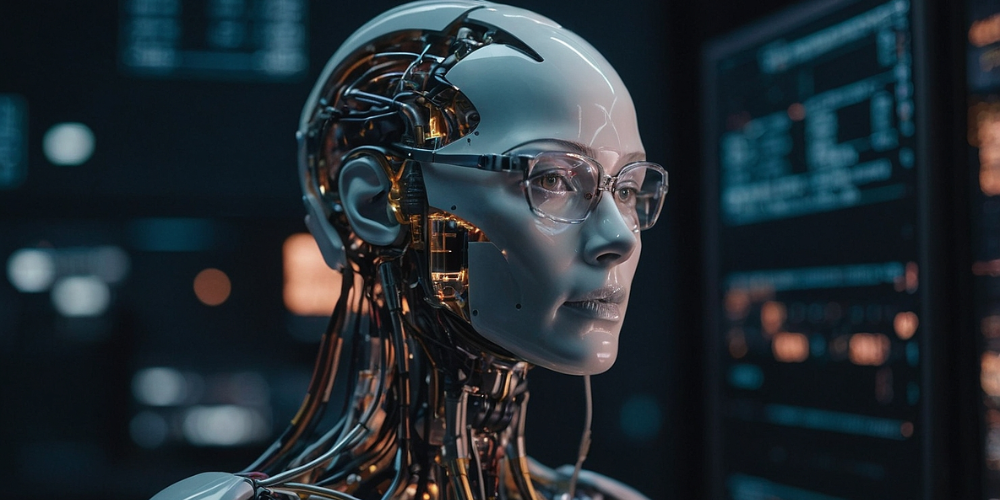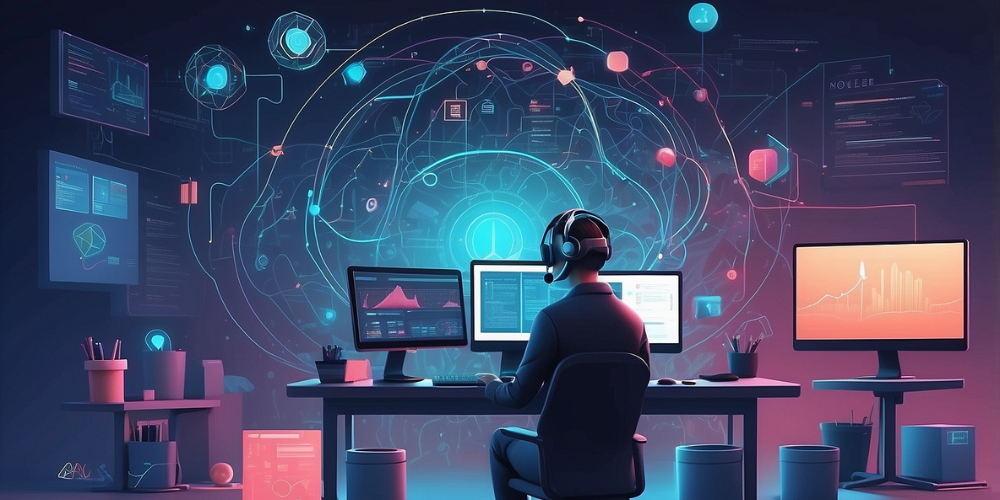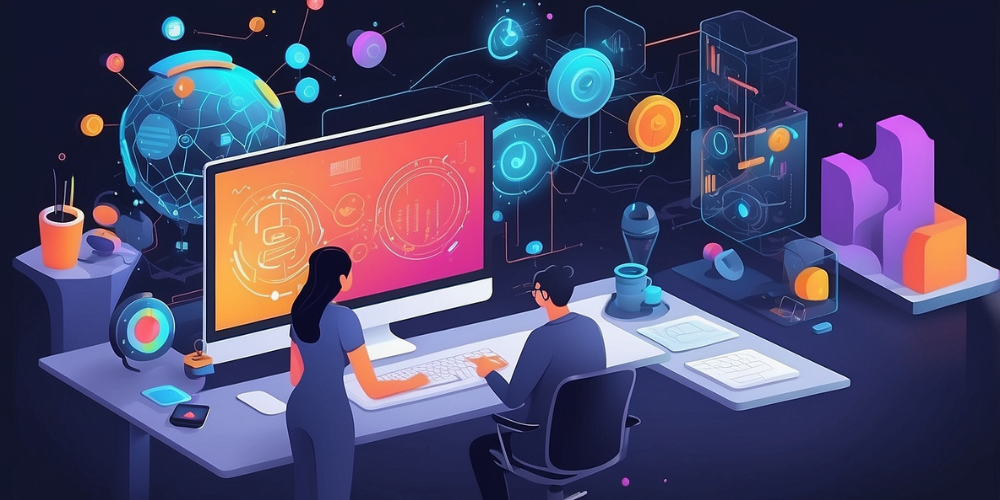The Role of AI in Modern Software Development
- Oct 08, 2024
- 1126

I have always been fascinated by technology, particularly how it streamlines processes and enhances productivity. As I delved deeper into software development, I became increasingly aware of the pivotal role that artificial intelligence plays in modern programming practices. From automating mundane tasks to sophisticated troubleshooting, AI is transforming how we approach software development.
Automation of Repetitive Tasks
One of the most striking applications of AI in software development is its ability to automate repetitive tasks. There were moments when I found myself bogged down by routine coding tasks or debugging processes. However, AI tools can now help compile code, generate documentation, and even refactor code automatically. This automation allows developers like me to focus on more complex issues that require creative thinking and problem-solving skills.
Intelligent Code Assistance
Using intelligent code assistants has become a game-changer in my daily workflow. These tools can offer suggestions based on the context of the code I am writing, improving the overall efficiency of the coding process. Angular, React, and VS Code extensions leverage machine learning algorithms to provide code predictions, which not only speeds up the development cycle but also helps minimize errors.
Enhanced Testing Capabilities
Testing is an essential part of software development, and I often found it tedious and time-consuming. The advent of AI-driven testing frameworks has significantly transformed my approach. Tools powered by AI can analyze code to identify potential vulnerabilities and suggest test cases. This capability not only saves time but also enhances the reliability of the software being developed.
Natural Language Processing in Requirements Gathering
Communicating requirements has always been a challenge in software projects. With the integration of natural language processing (NLP), it has become easier for me to translate user requirements into technical specifications. AI-driven tools can analyze user stories and generate a structured set of requirements, ensuring that nothing falls through the cracks.

Predictive Analytics for Project Management
Managing projects is never a straightforward endeavor; however, I have found that incorporating predictive analytics powered by AI can significantly improve forecasting and resource allocation. By analyzing historical data, these systems can predict potential bottlenecks, allowing me to allocate resources and plan sprints more effectively.
Code Quality Improvements
When developing software, code quality is paramount. I often depend on AI-based code quality tools that review my code for potential bugs and adherence to best practices. These tools utilize advanced algorithms to evaluate the complexity and maintainability of the code, providing recommendations that help me produce cleaner and more efficient software.
Automated User Experience Testing
User experience is critical to the success of any application. AI has made it possible for me to conduct automated user experience testing by simulating user interactions. This feature provides insights into user behavior and engagement metrics, allowing me to make informed adjustments to optimize the end user’s interaction with the product.
Collaborative Development Environments
In my experience, collaboration is key in any software development project. AI tools serve as central hubs that foster collaboration across teams. Platforms that employ AI can identify team members' strengths and weaknesses and align tasks accordingly, ensuring a seamless workflow and maximizing productivity.
Cognitive Load Management
The mental burden of juggling numerous tasks can be overwhelming. AI applications that streamline project management aid in reducing cognitive load. These tools can prioritize tasks and set reminders based on deadlines and project timelines, which has proven beneficial for staying organized and focused.

Continuous Integration and Deployment
Continuous integration and deployment (CI/CD) have altered how I deploy software. Integrating AI into CI/CD pipelines enhances performance by automatically optimizing build processes and deploying code when certain conditions are met. AI can analyze patterns from previously successful deployments to recommend the best approach for future updates, thus improving delivery speed and quality.
Data-Driven Decision Making
Decisions in software development often rely on data analysis. AI tools have empowered me to make data-driven decisions by providing real-time analytics regarding application performance and user interactions. Before, I relied on intuition and touchpoints to evaluate application health, but now I have concrete data to inform my choices.
Predictive Maintenance of Software Systems
Software systems, like any other technology, require maintenance. Through predictive analytics, AI can help foresee potential failures and maintenance needs before they become critical. Implementing such strategies has allowed me to maintain software systems more proactively, reducing downtime and improving overall service reliability.
Security Enhancements
As cyber threats become more sophisticated, security becomes vital in software design. AI has contributed significantly to enhancing security measures in applications. For instance, threat detection systems utilize machine learning to identify anomalies that may indicate security breaches, providing me with the tools necessary to build safer applications.
AI-Powered Development Communities
The rise of AI also fosters more engaging developer communities. Platforms that utilize AI can facilitate discussions, provide answers, and curate relevant content tailored to individual user interests. This forms a vibrant ecosystem where I can learn and share insights with other developers, paving the way for collaborative growth.
The Future of AI in Software Development
As I reflect on the multifaceted impacts of AI in software development, I realize that this technology is not just a trend; it is fundamentally reshaping the industry. The potential for further advancements excites me. As AI continues to evolve, I look forward to new tools and techniques that will enhance my programming capabilities and improve overall software quality.